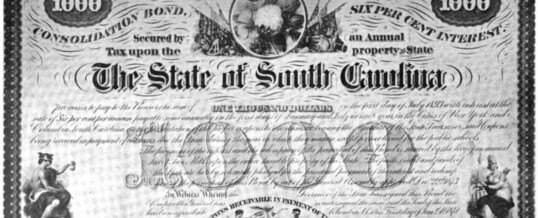
Volcker Rule May Adversely Impact Munis
Tuesday, November 22, 2011
The Bond Buyer
By Robert Slavin
Some market participants are concerned that the current version of the Volcker Rule would hurt the municipal bond market.
Named after Paul Volcker, the former Federal Reserve chairman, the rule would restrict federal insured banks’ ability to trade for their own benefit.
The rule comes in the wake of the 2008 financial crisis, when highly leveraged banking institutions lost huge sums on proprietary investments. But muni market participants are concerned the new restrictions on proprietary trading could have a negative spillover in the muni market.
They say the rule in its current form could affect about half of municipal securities and reduce liquidity in the muni bond market. The Volcker Rule was part of the Dodd-Frank Wall Street Reform and Consumer Protection Act that became law in 2010.
To define the rule, federal agencies in September 2011 released a 298-page draft. The public has until Jan. 13 to comment.
On Monday Vikram Rai, credit strategist for Citigroup, issued a report criticizing the proposed Volcker Rule.
The rule exempts certain classes of assets from its provisions. However, Rai says in its current form it would “not provide exemption from the prohibitions of proprietary trading for more than half of the securities currently outstanding in the municipal market.” Debt from semi-autonomous agencies of states and localities would not be exempt, he wrote.
In its current form the rule “could also severely limit, if not eliminate, the ability of dealers to provide tender options bond (TOB) financing for investors in the municipal market,” Rai wrote. “If not amended, the rule could … eliminate an important source of demands for long tenor municipal debt.”
“Eliminating proprietary trading activities and restricting market makers would adversely affect liquidity, widen bid-ask spreads drastically and exacerbate market fragmentation,” Rai wrote. “Smaller broker-dealers would find it harder to survive, which would cause a concentration of risk between the larger dealers and essentially counter the objective of the rule.”
The rule’s definition of government obligations should be expanded to include all municipal bonds, he wrote.
Bill Daley, senior vice president for government affairs at the Bond Dealers of America, agreed that the proposed rule was a problem.
Daley said there were two main problems with the rule, the first being that it has an excessively narrow definition of munis. “We’re going to urge them to take a broader definition of municipal securities and one that’s consistent with other parts of securities law,” he said.
Second, the BDA hoped that the rule would provide a workable definition of a market maker for fixed-income securities, Daly said. However, the rule’s definition is so complicated that the dealers’ group doesn’t think it works.
In September 2010, BDA chief executive officer Mike Nicholas wrote to the Securities and Exchange Commission concerning the market-maker issue.
The BDA “is writing to request additional guidance with respect to the ability of dealers to qualify under certain circumstances as market makers in the debt markets,” he said. “Clarity in the definition of market maker for fixed-income securities is important primarily because a clearer rule will encourage more dealers to take the risks associated with making a market and thus provide investors with greater liquidity. That greater liquidity will, in turn, foster a more efficient market and better allocation of resources.”
The BDA plans to put in a written comment on the rule with its objections, Daly said.
Another muni expert agreed that the current rule was a problem.
“We are looking into the issue,” said Susan Gaffney, director of the Government Finance Office Federal Liaison Center. “We want to insure that the definition of municipal securities within the Volcker Rule is consistent with the Dodd-Frank Act and thus excludes them from the rule itself.”
Go to The Bond Buyer
NOV

About the Author: